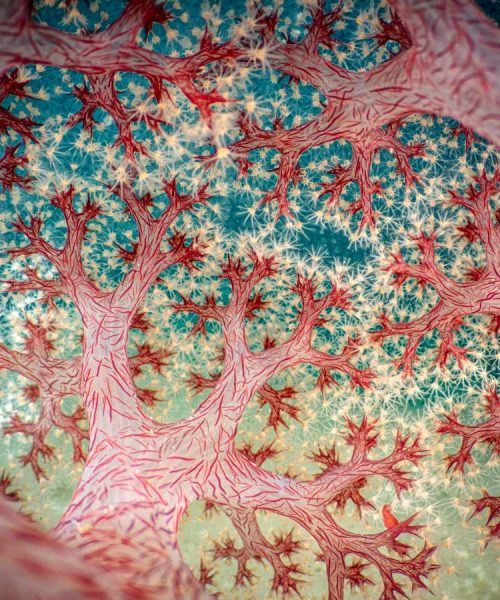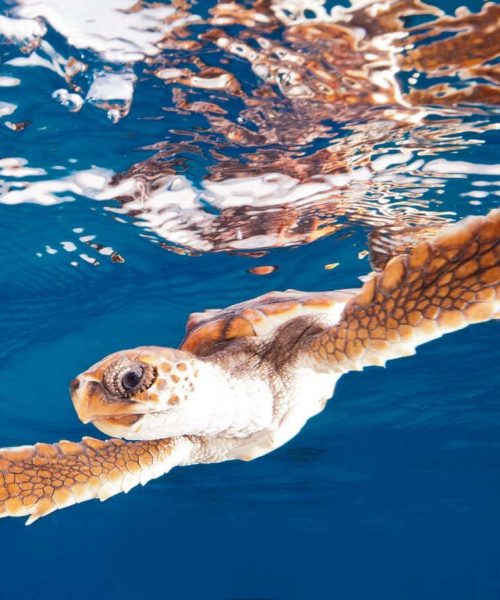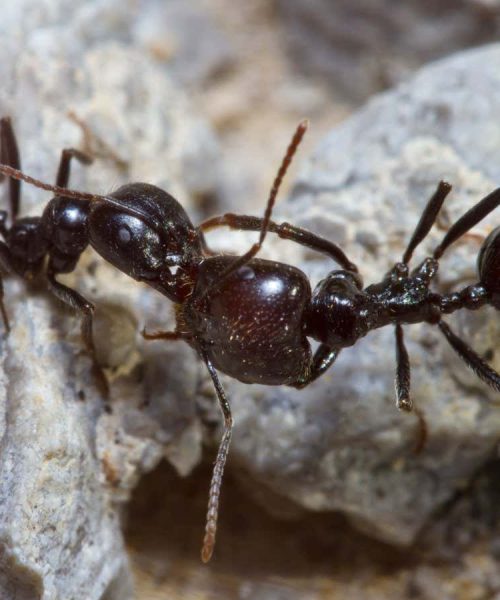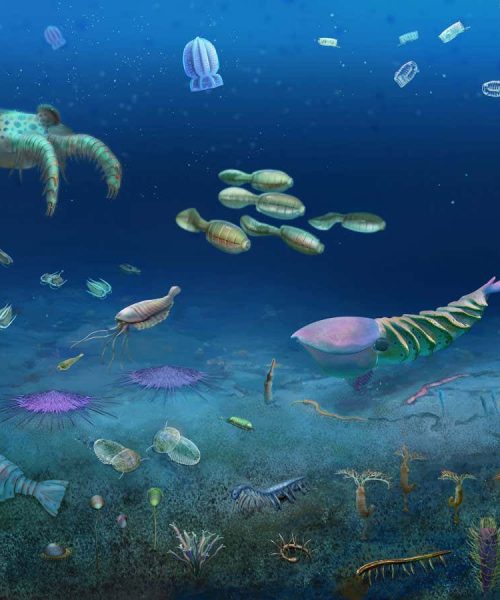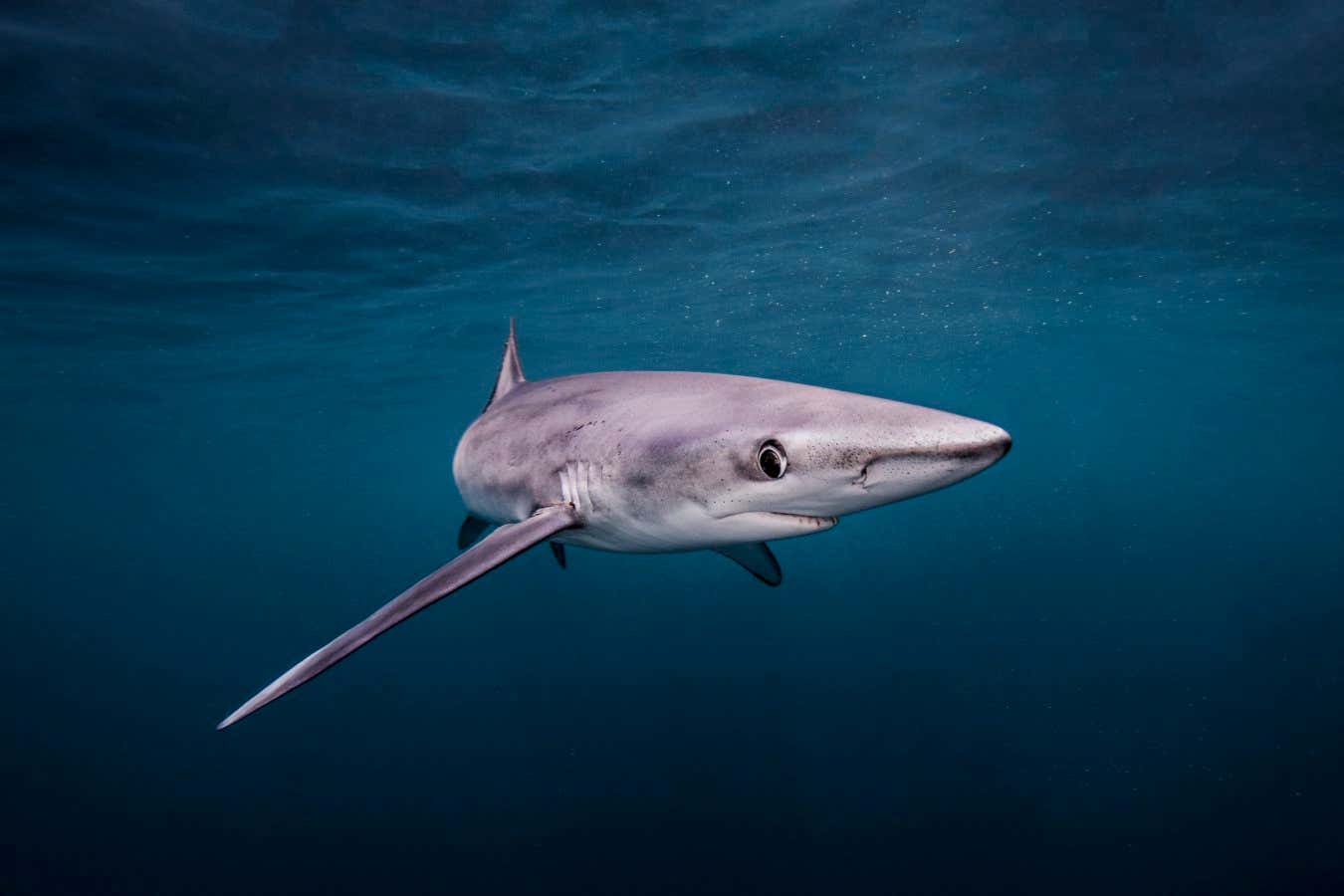
A blue shark
Ken Kiefer/Getty Images/Image Source
A blue shark was skewered through the head by a swordfish, but lived to tell the tale in the first known instance of a shark surviving this type of impalement.
When the shark was caught by fishers in Vlorë, southern Albania, it had no fresh puncture wounds and it had bait in its stomach, indicating it was feeding normally. An autopsy later revealed an 18.6-centimetre fragment of swordfish bill embedded in its skull.
Advertisement
“When I realised that there was a swordfish bill inside the shark’s head, I was astonished,” says Andrej Gajić at Sharklab ADRIA Research Centre in Vlorë.
Gajić has conducted tens of thousands of shark autopsies. “I’ve never encountered anything like this before, nor have I read about it in the literature,” he says. His team tries to revive and release sharks caught as bycatch if possible, but this shark died before it arrived in port.
There have been eight previously documented incidences of blue sharks (Prionace glauca) being impaled by swordfish (Xiphias gladius) with the swordfish’s rostrum found in or near the shark’s head. A bigeye thresher shark (Alopias superciliosus) and a shortfin mako shark (Isurus oxyrinchus) have also been found gored by billfish, the group that includes swordfish.
This is the first verified shark survival of such an encounter. As it was impaled, the young swordfish probably reacted instinctively by elevating its head, snapping off its bill without damaging any of the shark’s vital structures, says Gajić.
The adult shark measured 275 centimetres and weighed 44 kilograms. Swordfish can grow up to around 455 centimetres and weigh as much as 650 kilograms. There are some reports of blue sharks feeding on swordfish, and both animals use aggressive hunting tactics to feed on dense schools of fish or squid.
Such impalements could occur when swordfish try to defend themselves from a blue shark’s attack, or due to an accidental collision when both predators are feeding on the same prey. Gajić says more observations are needed to determine the cause.
Topics:
